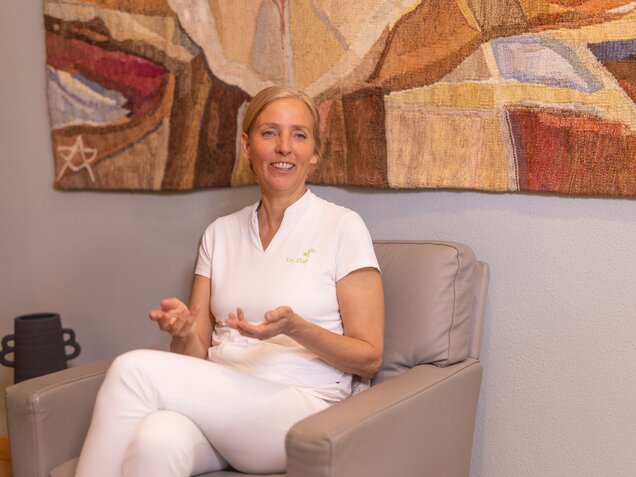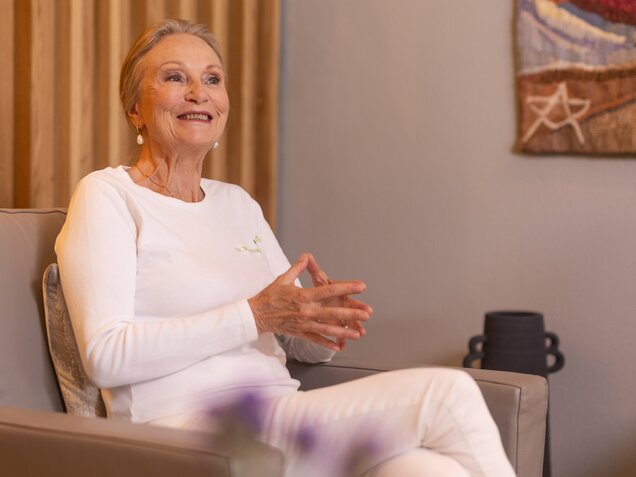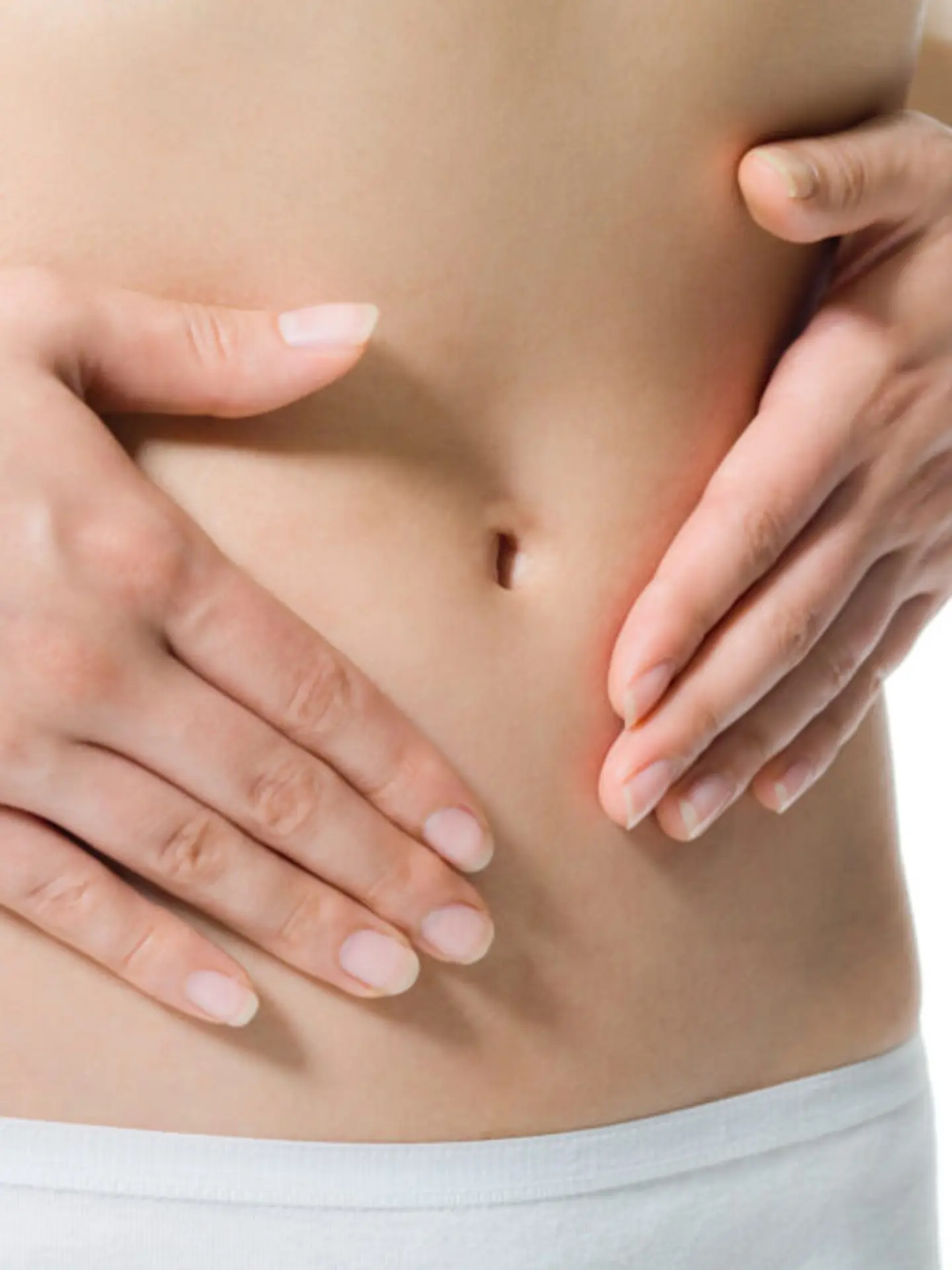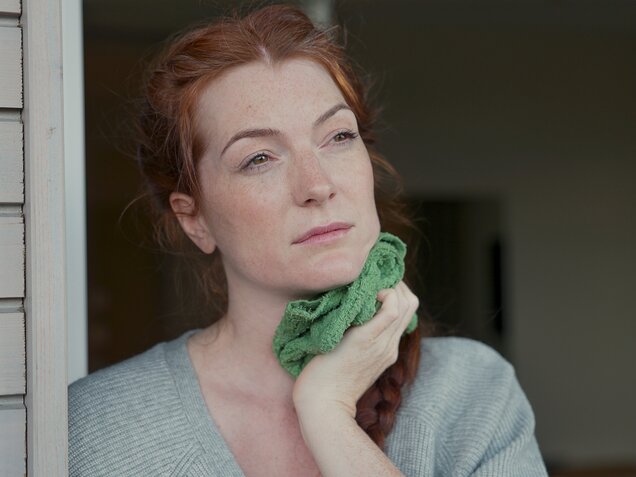Tuning Into a New Phase of Life
Sudden restlessness, unexplained insomnia, a vague sense of irritability—and all this from your mid‑30s? What often seems like stress or exhaustion may in fact signal the beginning of a profound hormonal shift: perimenopause. It’s not an isolated event but part of a natural development that eventually affects every woman—yet it remains a taboo topic for many.
Understanding what is happening within your body brings clarity and a sense of control. Because perimenopause is not the end of vitality—it’s the beginning of a new, empowered phase. Early signs like sleep disruption, irritability or spotting often go unnoticed. But when does perimenopause actually begin—and how can you recognise it?
Expert Insights From Park Igls
Awareness Brings Confidence
In conversation with Park Igls Mayr physicians Dr Sybille Matzenauer and Dr Karin Hof, we explore the causes, symptoms and ways to support this transition—especially through Modern Mayr Medicine. When you’re informed, you can actively support your wellbeing and shape this natural phase with intention.
The Blind Spot in Midlife
Earlier Than Expected
“By their mid-30s, many women are already in premenopause—some cycles no longer include ovulation,” explains Dr Karin Hof. “This leads to a drop in progesterone and to symptoms such as irritability, anxiety and sleep problems. But no one expects that—these women are in the middle of life, often raising young children and managing a career.” That’s exactly why awareness at this stage is crucial—and the right time to seek support.
Between Emotion and Function
Often Misunderstood
“Women in perimenopause often experience psychological symptoms—yet these are rarely linked to hormones at first,” says Dr Sybille Matzenauer. “That’s why it’s important to talk about it—so women understand that anxiety, insomnia or mood swings can have a hormonal cause.” Physical issues such as palpitations or muscle tension are often misinterpreted. Knowing the true cause can ease the strain and open the door to effective support.
What Are the Typical Symptoms?
Perimenopause is hormonally defined by irregular ovulation. First, progesterone levels drop, followed later by oestrogen and testosterone. The body enters a phase of hormonal imbalance that can manifest in many ways:
- Hot flushes
- Irregular periods or spotting
- Breast tenderness
- Irritability and mood swings
- Anxiety or low moods
- Memory lapses or trouble concentrating
- Sleep disturbances
- Vaginal dryness, bladder sensitivity
“You can take a woman’s symptoms seriously. In addition to personal experience, hormone tests and specific questionnaires support the diagnosis.”
Modern Mayr Medicine in Focus
Holistic Guidance
At Park Igls, the focus isn’t just on relieving symptoms but on understanding causes and restoring balance. Modern Mayr Medicine offers a proven whole-body concept:
Mikrobiome & Balance
A gut-friendly Mayr Cuisine can positively influence hormonal balance—and through the gut-brain axis, support mood and energy levels too.
Perimenopause & Prevention
Protecting Long-Term Health
Hormonal shifts impact not just your current wellbeing, but also long-term health risks:
-
Cardiovascular system: Oestrogen deficiency increases the risk of heart attack and stroke
-
Bones: Prevent osteoporosis through targeted nutrients (calcium, vitamin K2, magnesium) and regular movement
-
Metabolism and thyroid: Autoimmune conditions like Hashimoto’s thyroiditis often become more common during this phase
Modern Mayr Medicine can help prevent this: with a healthy digestive system, nutrients are better absorbed, inflammation is reduced and the entire body is supported.
Perimenopause Reset
A Chance for Realignment
Perimenopause is more than just a transitional stage—it’s a chance to consciously reset and realign body and mind. If you recognise and understand the symptoms early, you don’t just respond—you can actively prevent.
Modern Mayr Medicine at Park Igls offers a trusted, holistic framework for this: individualised, science-based and deeply effective.
Perimenopause
FAQs
Perimenopause can begin as early as the mid-30s, though for many women it starts closer to the age of 40. Early signs include irregular cycles, sleep disturbances, irritability and breast tenderness.
Hot flushes, spotting, mood swings, low moods, sleep and concentration issues, vaginal dryness
Between 2 and 7 years—it ends with menopause, defined as twelve consecutive months without menstruation.
Progesterone levels drop first, followed later by oestrogen and testosterone. This hormonal shift affects the body, mood and energy levels.
Yes, although fertility declines, pregnancy is still possible in principle
In addition to hormone replacement therapy, herbal remedies, nutrition (such as Mayr Cuisine), physical activity, micronutrients and stress reduction can provide support. Our homemade herbal teas also help promote hormonal balance and relaxation.
Perimenopause refers to the time leading up to the final menstrual period. Menopause is defined as the point after twelve consecutive months without a period.
The risk of cardiovascular disease, osteoporosis and autoimmune conditions increases.
An anti-inflammatory diet, regular movement, stress management, good sleep hygiene and herbal remedies such as black cohosh or essential oils.
Premenopause typically begins around the mid-30s, often without noticeable symptoms, but with the first subtle hormonal changes.
Perimenopause is the active transition phase, during which cycles become irregular and typical symptoms like hot flushes or mood swings appear. Postmenopause begins after menopause—defined as twelve consecutive months without menstruation—and lasts for the rest of life. In this stage, hormone levels usually remain low but stable.


















